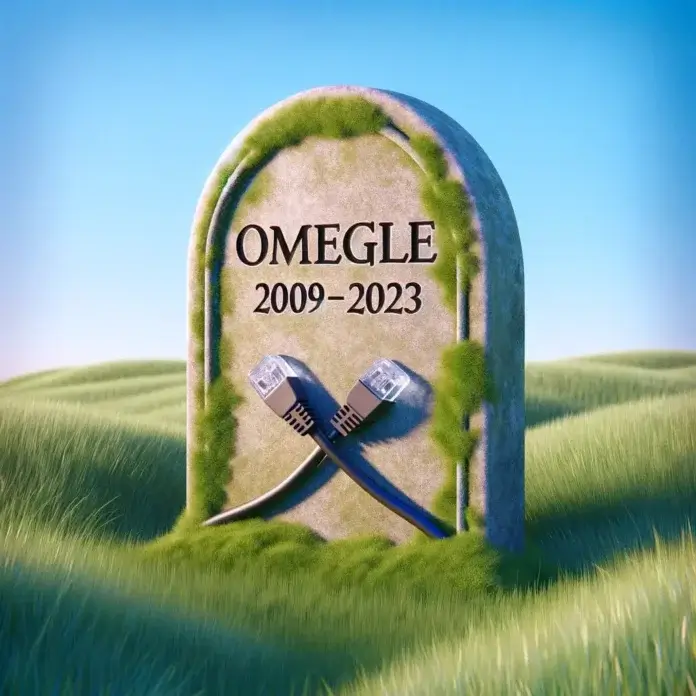After over a decade of connecting strangers, the Omegle shutdown has abruptly halted a pioneer in anonymous online chat services. This unexpected end signals a significant moment for digital communication, spotlighting issues of internet safety and regulation. As the era of Omegle comes to a close, the online world is compelled to confront the realities of maintaining safe and open platforms. The shutdown opens a dialogue on the future of online interactions and the balance between freedom and security in the digital age.
The Beginnings of Omegle
Launched in 2009 by an 18-year-old programmer, Leif K-Brooks, Omegle began as a groundbreaking platform designed to fulfill a basic human need: connection with others. It provided a space for strangers to meet and converse, without the need for registration or personal information, coining the phrase “Talk to strangers!” This simplicity and the promise of spontaneous interaction made Omegle an instant hit, drawing in millions of users from around the globe.
Omegle’s popularity surged during its early years, with its appeal lying in the unpredictability and the excitement of conversing with an anonymous person. However, as the platform grew, so did the challenges. It became a target for misuse, and the anonymity that once was its selling point began to foster activities ranging from pranks to more sinister behaviors, including exploitation and harassment.
The COVID-19 pandemic saw a resurgence in Omegle’s usage as people, confined to their homes, sought out social interactions in the virtual realm. This increased traffic brought about a dark side; the site reportedly recorded 600,000 incidents of child sexual abuse in 2022 alone. These alarming numbers cast a long shadow over the platform’s future.
What happened?
Citing the “unspeakably heinous crimes” committed on the platform and the overwhelming stress and expense of managing such incidents, K-Brooks announced the shutdown of Omegle. The decision points to the tremendous pressure on digital platforms to regulate content and protect users, a task that proved too onerous for Omegle, which K-Brooks seemingly operated independently.
Omegle shutdown after over a decade online
The closure of Omegle is not just about the end of a platform; it’s a commentary on the state of the internet today. K-Brooks himself noted the internet’s shift from a space of active participation and genuine human connection to one focused on passive consumption. Omegle’s shutdown is a reflection of how difficult it has become to maintain a space for open communication without falling prey to malicious use.
The fact that Omegle was taken offline by civil action rather than state enforcement highlights the gaps in US regulation of online spaces. It underscores the need for better regulatory frameworks that can protect users, especially minors, from online abuse while still allowing for the free flow of ideas and connections that was the original vision of the internet.
What’s next?
Omegle’s demise raises the question: What is the future of online interaction? As we move forward, it’s crucial for tech developers, users, and regulators to work in tandem to create safer online environments. The challenge lies in balancing the freedom of the internet with the safety and well-being of its users.
Omegle’s closure is a significant moment in the history of the internet. It serves as a wake-up call to the inherent risks present in digital spaces and the collective responsibility we share in navigating them. As we bid farewell to Omegle, we must also look ahead, towards building a more secure and connected online world, learning from the lessons its journey has taught us.
The story of Omegle is a complex tapestry woven with the threads of innovation, connection, and the darker side of human nature. Its legacy, for better or worse, will live on as a reminder of the double-edged sword that is anonymity online.



